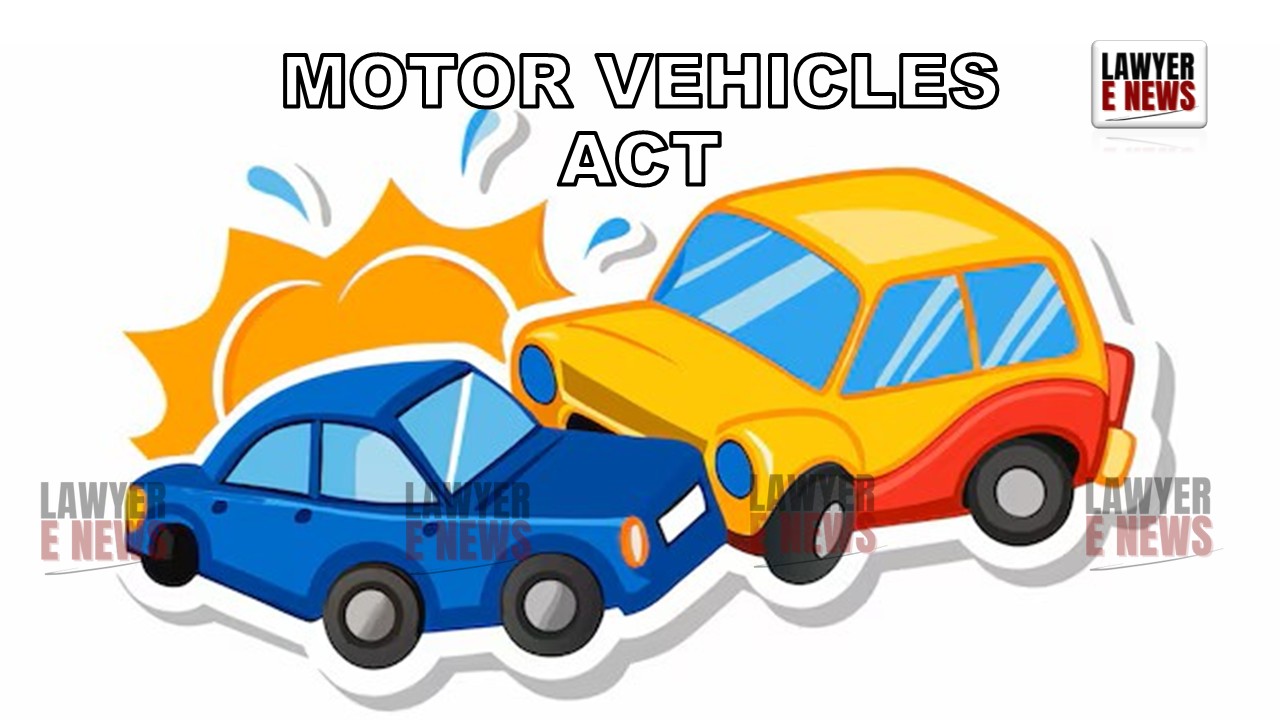-
by Admin
15 February 2026 5:01 PM



The Orissa High Court, on January 6, 2025, dismissed a writ petition filed by Shriram General Insurance Company Ltd. challenging the maintainability of a claim petition under Section 166 of the Motor Vehicles Act, 1988. The Court, presided over by Hon’ble Justice Murahari Sri Raman, held that the six-month limitation period introduced by the Motor Vehicles (Amendment) Act, 2019, effective from April 1, 2022, applies only prospectively. Accidents that occurred before this date remain governed by the unamended provisions, which imposed no limitation period.
The Court emphasized that the Motor Vehicles Act, being a piece of benevolent legislation, should be liberally construed to ensure compensation for victims of road accidents.
"Limitation Provisions Cannot Extinguish Pre-Existing Rights," Holds High Court
Rejecting the petitioner’s argument that the claim was barred by limitation, the Court observed: "The six-month limitation period under Section 166(3) of the Motor Vehicles Act, 1988, introduced by the 2019 Amendment, applies prospectively. Accidents that occurred before April 1, 2022, are not subject to this limitation, as the amendment did not have retrospective effect."
This interpretation aligns with the principle that amendments affecting substantive rights are presumed to operate prospectively unless expressly stated otherwise.
The case arose from an accident that occurred on November 19, 2021, in Ganjam district, Odisha. The claimant, Subash Pradhan, suffered injuries due to the alleged rash and negligent driving of a goods carrier. He filed a compensation claim of ₹20,00,000 under Section 166 of the Motor Vehicles Act on November 29, 2022, nearly a year after the accident.
Shriram General Insurance Company, the insurer of the offending vehicle, argued before the Motor Accident Claims Tribunal (MACT) that the claim was barred by the six-month limitation period under Section 166(3), introduced by the Motor Vehicles (Amendment) Act, 2019. The MACT rejected this plea, prompting the insurer to approach the High Court.
"Legislative Intent Prioritizes Victim Compensation Over Technical Objections"
The Court reiterated that the primary objective of Section 166 is to ensure compensation for road accident victims. It stated:
"The legislative intent behind the Motor Vehicles Act is to provide a mechanism for victims to seek justice and compensation. Courts must not allow procedural technicalities to defeat the purpose of the Act."
The Court relied on the precedent set in State of Punjab v. Bhajan Kaur (2008) and Paschim Banga Khet Mazdoor Samity v. State of West Bengal (1996), where the Supreme Court underscored the state's obligation to provide effective remedies for victims.
"Amendment Effective from April 1, 2022, Has No Retrospective Application"
Analyzing the 2019 Amendment, the Court noted that the limitation provision under Section 166(3) was introduced via Section 53 of the Motor Vehicles (Amendment) Act, 2019, and was notified to come into effect on April 1, 2022.
Citing various High Court rulings, including Thomas Daniel v. Selvi (Madras High Court, 2024) and Mangal Batra v. Mohammad Rafeeq Visayati (Allahabad High Court, 2022), the Court held:
"The law applicable to a claim is determined by the date of the accident. Since the accident in this case occurred before April 1, 2022, the six-month limitation period does not apply."
The judgment also emphasized the procedural reforms introduced by the 2019 Amendment, particularly Sections 159 and 166(4), which mandate the preparation of a Detailed Accident Report (DAR) by police authorities. The Court noted:
"The DAR system minimizes procedural burdens on victims by enabling the Claims Tribunal to treat the report as a claim petition. This underscores the benevolent nature of the legislation."
The Court referred to the Supreme Court’s judgment in Gohar Mohammed v. Uttar Pradesh State Road Transport Corporation (2022), which highlighted the duty of investigating officers to expedite accident investigations and facilitate compensation claims.
Dismissing the writ petition, the Court upheld the MACT’s decision to entertain the claim. It ruled:
"The Motor Vehicles (Amendment) Act, 2019, does not retrospectively extinguish claims arising from accidents that occurred before its enforcement. The petitioner-insurer’s objections on limitation grounds lack merit."
The Court did not impose costs on the parties and directed the MACT to proceed expeditiously with the compensation proceedings.
Date of Decision: January 6, 2025
